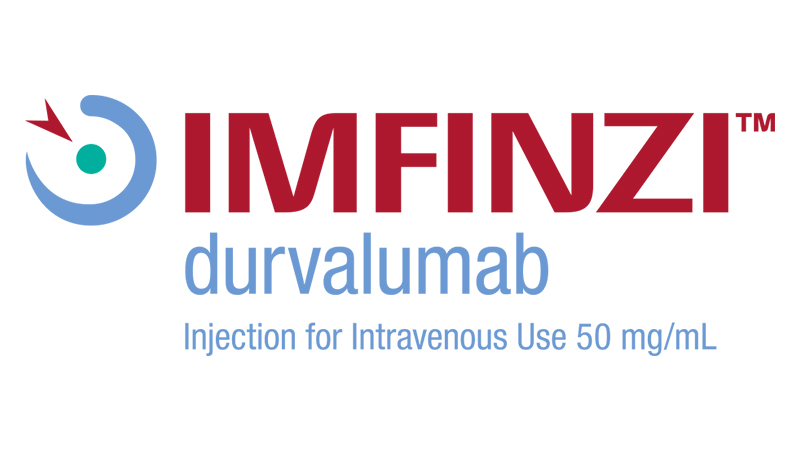Abstract
Background
Most patients with locally advanced, unresectable, non–small-cell lung cancer (NSCLC) have disease progression despite definitive chemoradiotherapy (chemotherapy plus concurrent radiation therapy). This phase 3 study compared the anti–programmed death ligand 1 antibody durvalumab as consolidation therapy with placebo in patients with stage III NSCLC who did not have disease progression after two or more cycles of platinum-based chemoradiotherapy.
Methods
We randomly assigned patients, in a 2:1 ratio, to receive durvalumab (at a dose of 10 mg per kilogram of body weight intravenously) or placebo every 2 weeks for up to 12 months. The study drug was administered 1 to 42 days after the patients had received chemoradiotherapy. The coprimary end points were progression-free survival (as assessed by means of blinded independent central review) and overall survival (unplanned for the interim analysis). Secondary end points included 12-month and 18-month progression-free survival rates, the objective response rate, the duration of response, the time to death or distant metastasis, and safety.
Results
Of 713 patients who underwent randomization, 709 received consolidation therapy (473 received durvalumab and 236 received placebo). The median progression-free survival from randomization was 16.8 months (95% confidence interval , 13.0 to 18.1) with durvalumab versus 5.6 months (95% CI, 4.6 to 7.8) with placebo (stratified hazard ratio for disease progression or death, 0.52; 95% CI, 0.42 to 0.65; P<0.001); the 12-month progression-free survival rate was 55.9% versus 35.3%, and the 18-month progression-free survival rate was 44.2% versus 27.0%. The response rate was higher with durvalumab than with placebo (28.4% vs. 16.0%; P<0.001), and the median duration of response was longer (72.8% vs. 46.8% of the patients had an ongoing response at 18 months). The median time to death or distant metastasis was longer with durvalumab than with placebo (23.2 months vs. 14.6 months; P<0.001). Grade 3 or 4 adverse events occurred in 29.9% of the patients who received durvalumab and 26.1% of those who received placebo; the most common adverse event of grade 3 or 4 was pneumonia (4.4% and 3.8%, respectively). A total of 15.4% of patients in the durvalumab group and 9.8% of those in the placebo group discontinued the study drug because of adverse events.
Conclusions
Progression-free survival was significantly longer with durvalumab than with placebo. The secondary end points also favored durvalumab, and safety was similar between the groups. (Funded by AstraZeneca; PACIFIC ClinicalTrials.gov number, NCT02125461.)




Plaats een reactie ...
Reageer op "Durvalumab (IMFINZI) geeft bij uitgezaaide niet-klein-cellige longkanker 11 maanden meer progressievrije tijd (44 procent) en FDA geeft durvalumab goedkeuring"